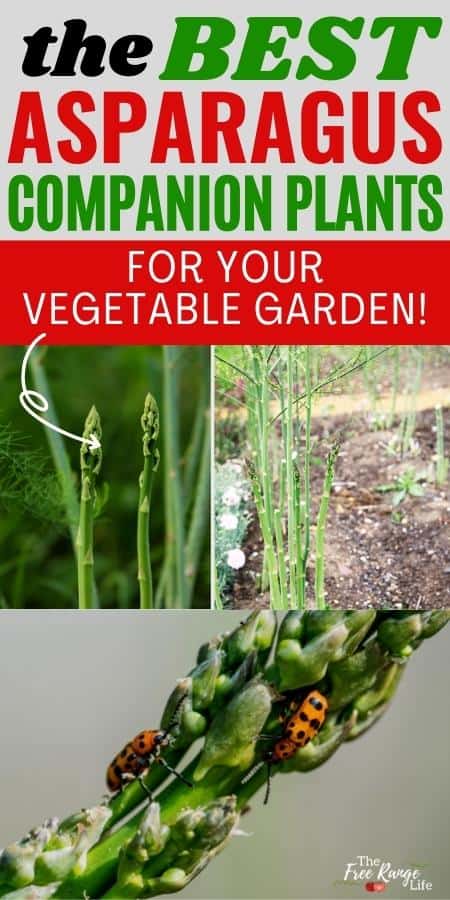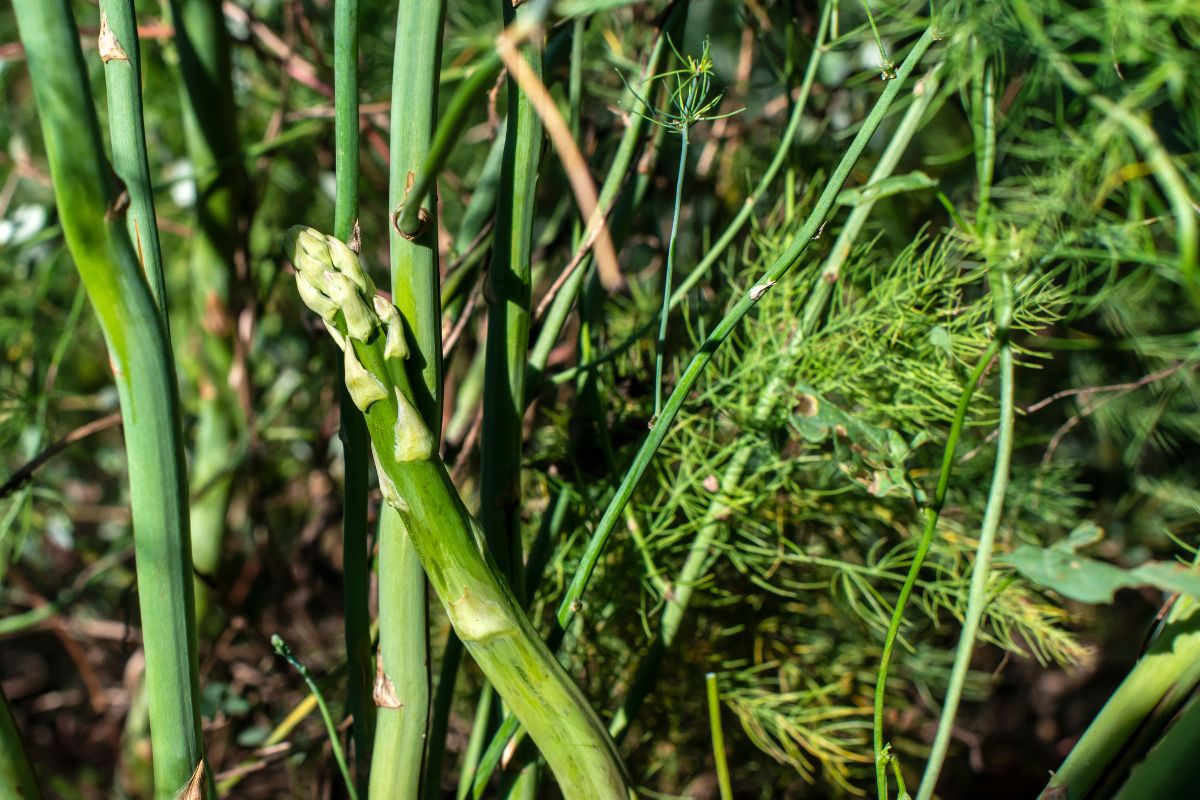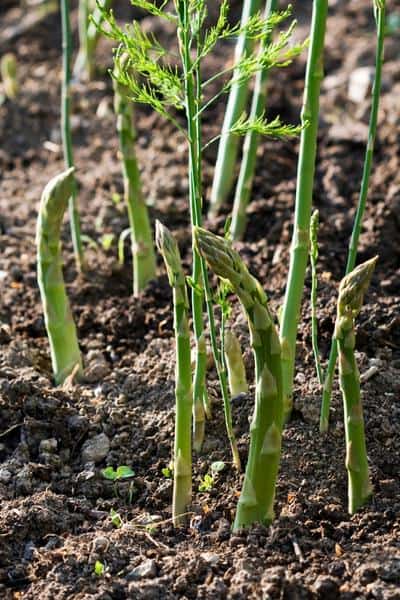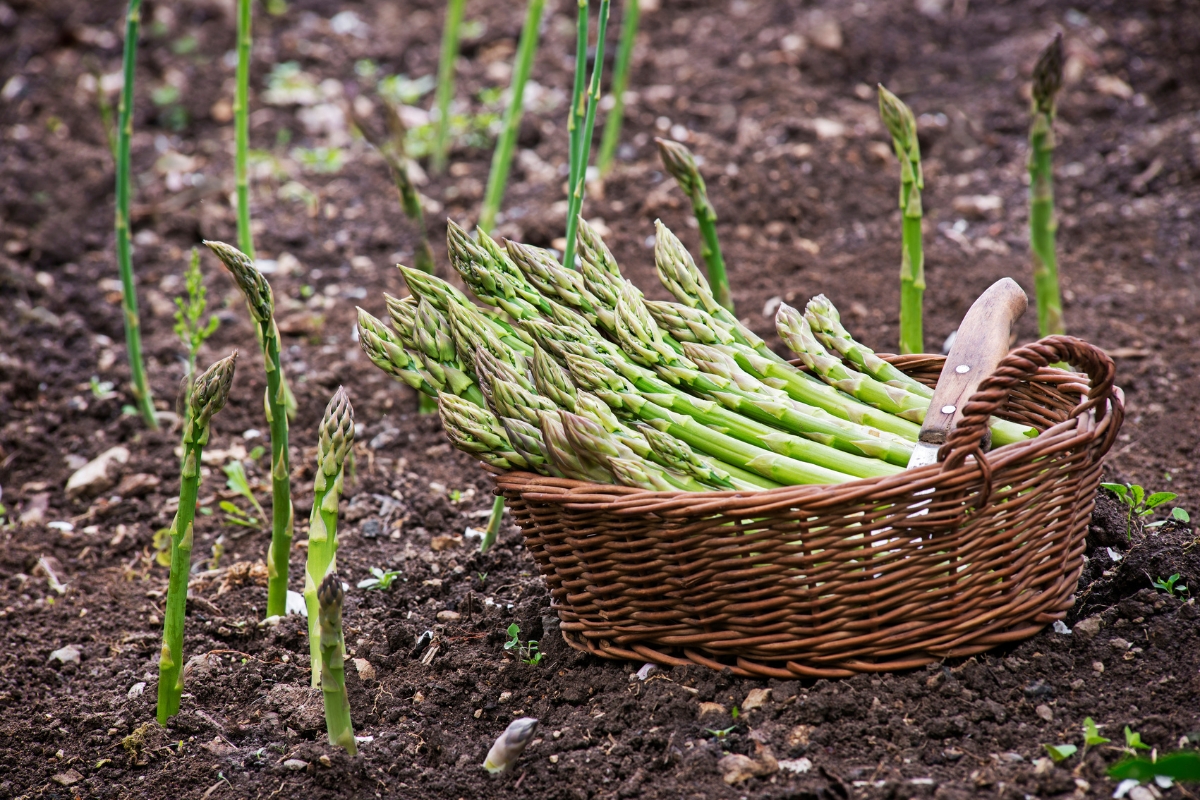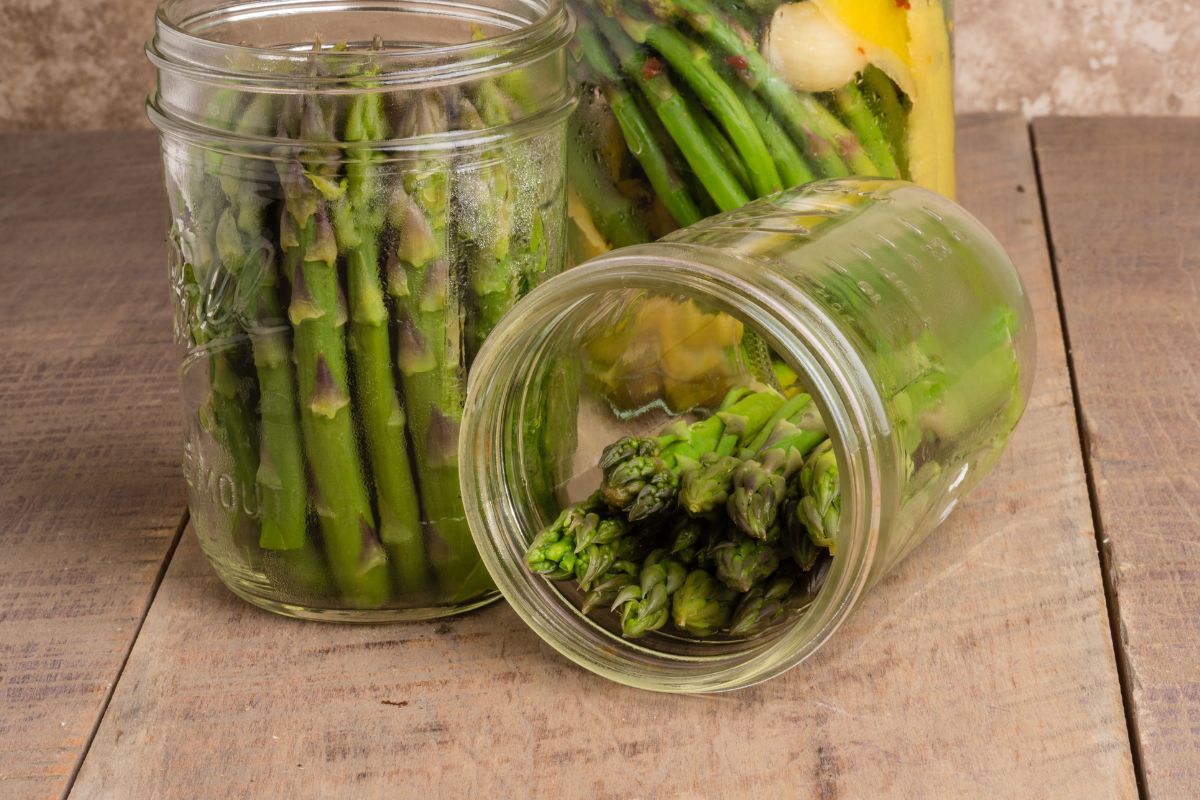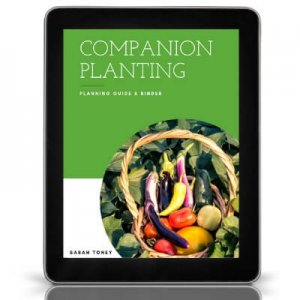Do you love growing asparagus in your vegetable garden? Learn the best asparagus companion plants to get a better harvest with fewer pests and healthier plants!
Asparagus differs from many vegetables grown in the garden because it is a perennial. This means that you plant it once and it come back year after year.
This site contains affiliate links. If you make a purchase using one of these links, I may earn a commission. Please see my disclosure page for more information about cookies collected and our privacy policy.
Asparagus takes time to cultivate and grow, and you won’t actually harvest any asparagus until about 3 years after planting.
Companion planting is more than just repelling pests in the garden- it’s a way of planning and planting your garden so that everything works together to prevent pests, build soil, increase yields, reduce weeds, save space and more! And just because asparagus is a perennial, it doesn’t mean you can’t plant other annuals and perennials around it to help maximize your space and increase productivity in your garden.
Companion planting does take time to plan each year, so check out my Companion Planting Planner to help you plan your garden beds before you plant so you can take advantage of companion planting!
Below you will find a list of asparagus companion plants that you can grow alongside asparagus in your garden to prevent disease and have fewer pests. Plus a list of what you should keep separate from your asparagus bed.
The Ultimate Guide to Asparagus Companion Plants for Your Garden
So what makes good companions for asparagus? Here’s a complete list of what to plant alongside your asparagus.
The Best Asparagus Companions for a Better Harvest
Dill: Dill is great for attracting beneficial insects to the garden. Because dill has a shallow root system, it does well near asparagus plants. It also thrives in the shade of the asparagus plants.
Dill will draw in butterflies and other pollinators.
Strawberries: Strawberries are another perennial that pairs well with asparagus. They provide ground cover and weed control for the asparagus plants.
You do need to plant the asparagus crowns a bit deeper so that the strawberry roots don’t compete with them.
Lettuce: Lettuce enjoys the shade of the asparagus and it’s a good companion because lettuce doesn’t get too big and is often in and out of the garden within a couple months.
Spinach: Like lettuce, spinach is grown and harvested fairly quickly, doesn’t take up much space, and enjoys the shade of the asparagus plants.
Parsley: Parsley can bring in swallowtail butterflies and other pollinators, plus help a little with deterring pests.
Flowers: Flowers are a great way to bring in all sorts of beneficial bugs. Plant annual flowers throughout your garden and around your asparagus bed. Here are 11 of my favorite flowers to plant in the garden.
Asparagus Companion Plants for Pest Control
Tomatoes: Tomatoes and asparagus have a symbiotic relationship making them great plant companions. Tomatoes help repel the asparagus beetle and asparagus can ward off nematodes that can damage the roots of your tomato plants.
Plant your tomatoes around the perimeter of the asparagus bed after you harvest the shoots
Eggplant: Since eggplant is also a nightshade like tomatoes, they provide the same benefits to asparagus as planting with tomatoes. Don’t forget to add some extra compost or nutrients when planting your tomatoes or eggplants since all of these plants are heavy feeders.
Basil: I love planting basil throughout my garden. Not only does it give a great harvest itself, but it also has pest control properties. Basil can help keep aphids and asparagus beetle off of your asparagus.
Basil plants also helps attract beneficial insects and pollinators.
Calendula: Calendula is a great companion plant to grow with asparagus. It will help deter the asparagus beetle.
Marigold: Marigolds will help keep asparagus beetles away as well as aphids.
Nasturtiums: Nasturtiums are a great trap crop for pests that may bother your asparagus plants.
What NOT to Plant with Asparagus
Not everything can be grown together- and in some cases planting certain plants near each other can cause a lot of problems! Here’s what should be kept away from your asparagus bed.
Garlic: Garlic should be kept away from asparagus. It can both stunt the asparaguses growth and contaminate the flavor.
Potatoes: Asparagus can stunt the growth of your potatoes– so keep your permanent asparagus bed in another area of the garden.
Onion: Like with garlic, onions can stunt the growth of your asparagus. Onions can also contaminate the flavor of your asparagus.
Carrots: Carrots have a long root system that doesn’t do well with asparagus and they’ll compete for space.
Basically, keep all alliums away from your asparagus as well as any plant that has very deep roots.
Essential Oils to Pair with Asparagus in the Garden
Sometimes companion planting isn’t quite possible. Maybe you have a small garden or even a container garden. Or maybe some of the best companions are crops that don’t grow well in your area.
Whatever the reason, if companion planting the above crops isn’t an option, essential oils can be helpful in the garden as a replacement.
Here are some essential oils to use in the garden to help with growing asparagus!
Basil Oil: Just like basil is a great companion plant, basil oil is a good companion oil for asparagus. It will help with pests such as aphids and many worms that might munch on your plants!
Neem Oil: Neem oil is great for so many things in the garden- including things like asparagus beetles and fungal diseases.
Parsley Oil: Parsley oil works similarly to the parsley plant and can help with pest control.
You can also check out this article on Using Essential Oils in the Garden for recipes and instructions on HOW to use the essential oils.
Once you have harvested your asparagus, check out some of the following articles to learn how to store, use, and preserve your harvest!
Asparagus can be dried, frozen, pickled, or pressure canned. Dehydrating is my favorite way to preserve okra because it reduces space and rehydrates beautifully for most uses such as soups and even fried okra!
Here’s How to Dry Asparagus using an electric dehydrator.
If you’d like to try canning, here are some options:
Canning Pickled Asparagus (Water Bath Canner)
And of course you can always freeze asparagus as well. Simply blanch the asparagus for about 3 minutes and then cool and either freeze whole or chop and freeze.
Freeze drying is a great way to make a shelf stable food that will last for YEARS. Here’s how to freeze dry asparagus. Harvest Right makes a great Freeze Dryer that is perfect for home use.
Want to learn more about companion planting? Check out my Complete Guide to Companion Planting!

